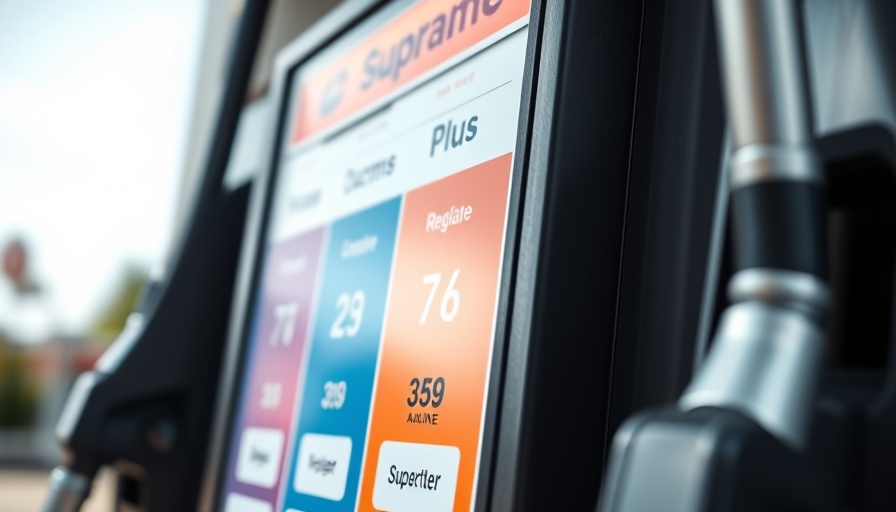DIY Home Projects
Gasoline 101: 10 Critical Insights for Homeowners and DIYers
Understanding Gasoline: 10 Essential Insights
Gasoline is the lifeblood of many of our vehicles, yet most people remain in the dark about its intricacies. For homeowners and DIY enthusiasts, knowing the facts about gasoline can illuminate many decisions regarding vehicle maintenance and home projects. Below, we delve into ten crucial insights that will equip you with the knowledge you need when it comes to purchasing or storing gasoline.
1. Is Premium Gas Really Worth It?
Many car owners often debate whether upgrading to premium gas is necessary. The answer lies in understanding octane ratings. Premium gasoline may resist detonation better than regular gasoline; however, unless your vehicle's manufacturer specifies it, you're unlikely to experience a notable difference in performance. More often than not, regular 87-octane gas will suffice for most vehicles. The crucial takeaway is to always follow your owner’s manual to determine the best fuel grade for your engine.
2. Gasoline Storage: How Long Can It Last?
If you're a DIYer, you may need to store gasoline for lawn mowers or other small engines. Tightly sealed containers can keep gasoline usable for a season. Without proper sealing, however, ethanol can separate, leading to oxidation and gum formation—friends of neither your fuel system nor your engine. A fuel stabilizer can help maintain gasoline integrity, but it's ideal to invest in good containers for storing fuel.
3. The Truth About Gas Additives
Ever find yourself in the gas station aisle pondering whether to grab a bottle of fuel additive? Here's a hint: most fuel additives promise more than they deliver. Although some formulations can help clean your fuel system, they do not significantly boost fuel efficiency. Look for those containing polyisobutylamine (PIBA) or polyetheramine (PEA), and avoid others that may not offer any real benefits.
4. Is Brand Name Gas Better?
Historically, gas from major brands was deemed superior to that from lesser-known stations, primarily due to higher additive packages. However, this gap has narrowed significantly over the years. Today, many budget brands meet the same specifications as major ones, including detergents and additives mandated by the EPA. For consumers looking to save, opting for a less well-known brand may not be the risky choice it once was.
5. Can You Use Gasoline in Older Vehicles?
If you drive a classic car, you might be concerned about using modern unleaded gasoline. Many older engines were designed for leaded fuel, which raises the question: is unleaded safe? In general, unleaded gas is acceptable, but using higher-octane fuels can help reduce engine knocking in older cars. Experiment with different grades if you experience any knocking, but always remember to consult your mechanic for tailored advice.
6. Gasoline and Environment: What You Should Know
As environmental concerns grow, understanding how gasoline impacts air quality and pollution is vital. Gasoline combustion produces greenhouse gases, contributing to climate change. For eco-conscious consumers, alternatives such as electric vehicles or biofuels provide pathways to reducing carbon footprints. Knowing the impact of your fuel choice is crucial in today’s climate-conscious world.
7. Safety Measures When Handling Gasoline
Handling gasoline may seem routine, but it’s essential to prioritize safety. Always store gasoline in approved containers, away from ignition sources, and never fill tanks near running engines or sparks. Wearing gloves can help protect your skin from chemical exposure. This simple protocol can prevent accidents and ensure your DIY projects go off without a hitch.
8. Ethanol in Gasoline: What You Need to Know
Much of the gasoline sold today contains ethanol, which is derived from corn and promotes greener fuel options. However, ethanol can also attract moisture, which can harm small engines. If you’re using gasoline in lawn equipment or older cars, consider using fuel without ethanol to avoid potential damage.
9. The Role of Detergents in Your Gasoline
Detergents are crucial in keeping your engine clean by preventing deposits that might affect performance. Major gasoline brands often promote their detergent additives, claiming they offer superior cleaning. While all brands must meet minimum EPA standards, opting for brands known for better detergent protection can help maintain long-term engine health.
10. Preparing Your Engine for Seasonal Changes
As seasons change, prepare your gasoline consumption accordingly. In colder months, using a fuel blend designed for winter can aid in starting your vehicle. Conversely, if you're storing fuel during the off-season, ensure it’s treated with a stabilizer to maintain its freshness. Planning based on usage patterns can save you money and keep your engines running effectively.
Conclusion: Fuel Up with Confidence
Armed with this knowledge about gasoline, you can make smarter decisions both in fuel purchases and maintenance of your equipment. From choosing the right gas for your vehicle to safely storing fuels, your understanding will pave the way for DIY success and confident vehicle operation. Embrace this newfound knowledge and fuel up for your next project!

 Add Row
Add Row
 Add
Add
 Add Row
Add Row
 Add Element
Add Element

























 Add Row
Add Row
 Add
Add


